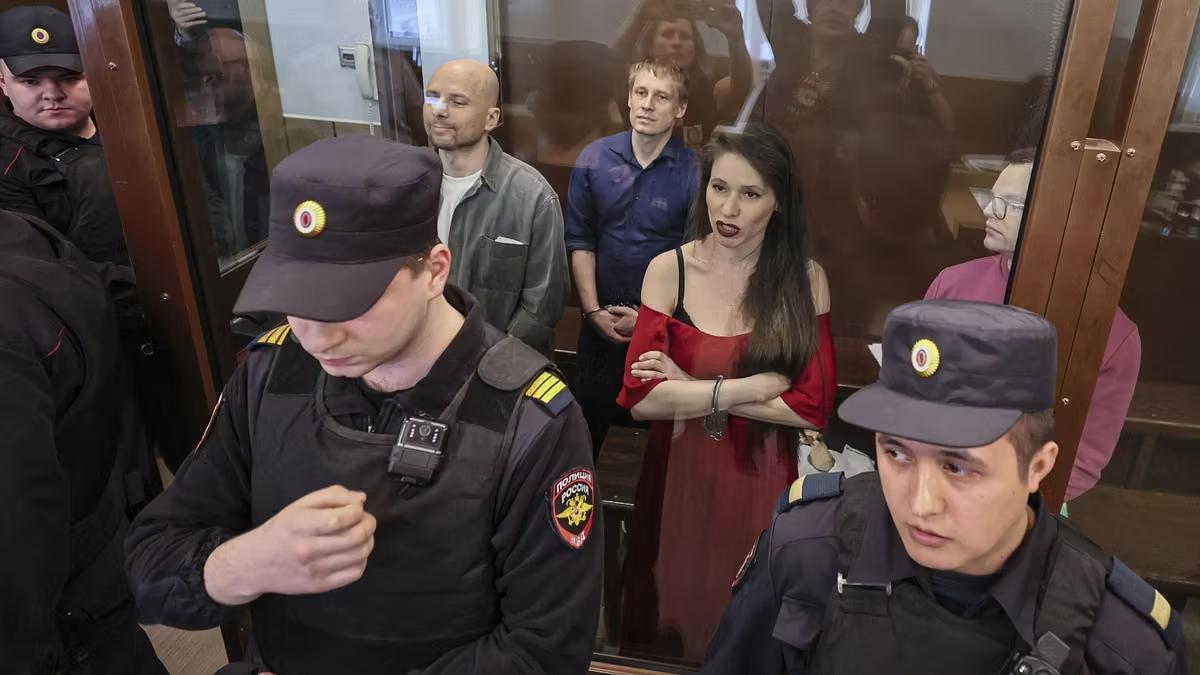Physical Address
304 North Cardinal St.
Dorchester Center, MA 02124
Physical Address
304 North Cardinal St.
Dorchester Center, MA 02124

A Moscow court sentenced four Russian journalists—Antonina Favorskaya, Konstantin Gabov, Sergey Karelin, and Artyom Kriger—to five and a half years in prison each.
The charge? Alleged links to Alexei Navalny’s banned Anti-Corruption Foundation (FBK), which Russia labeled “extremist” in 2021.
The trial was held behind closed doors. Details were scarce. The prosecution claimed they contributed to Navalny’s YouTube channels—like NavalnyLIVE—but presented vague evidence, including unspecified videos and online materials.
Takeaway: Four Russian journalists are facing prison not for violence or espionage—but for what they reported.

All four deny the charges. Favorskaya, who filmed Navalny’s last court appearance before his 2024 death, says she was targeted for covering his prison abuse and funeral.
Takeaway: These weren’t activists—they were Russian journalists, and they say that’s exactly why they were prosecuted.
This isn’t isolated. Since the war in Ukraine began, Russia has ramped up its crackdown on dissent. Opposition figures, independent Russian journalists, and activists have faced:
At least 32 journalists are currently detained, according to Reporters Without Borders.
Takeaway: Russia’s media climate is tightening, fast—and independent voices are being silenced.

The ruling sets a dangerous precedent. Labeling journalism as “extremism” allows the Kremlin to sideline critical coverage under national security laws.
This could:
Human rights groups, press advocates, and global leaders have condemned the sentences. Yulia Navalnaya, Navalny’s widow, called it political persecution.
Takeaway: When reporting the truth becomes a crime, democracy suffers—at home and abroad.
This case adds to rising global tension over authoritarianism, censorship, and human rights abuses. As Russia grows more isolated, actions like this deepen the divide with Western democracies.
Takeaway: These sentences may not just silence voices—they could shift international relations and raise alarms about the state of press freedom worldwide.
Daily News. No B.S. No Fluff. Just What You Need to Know.